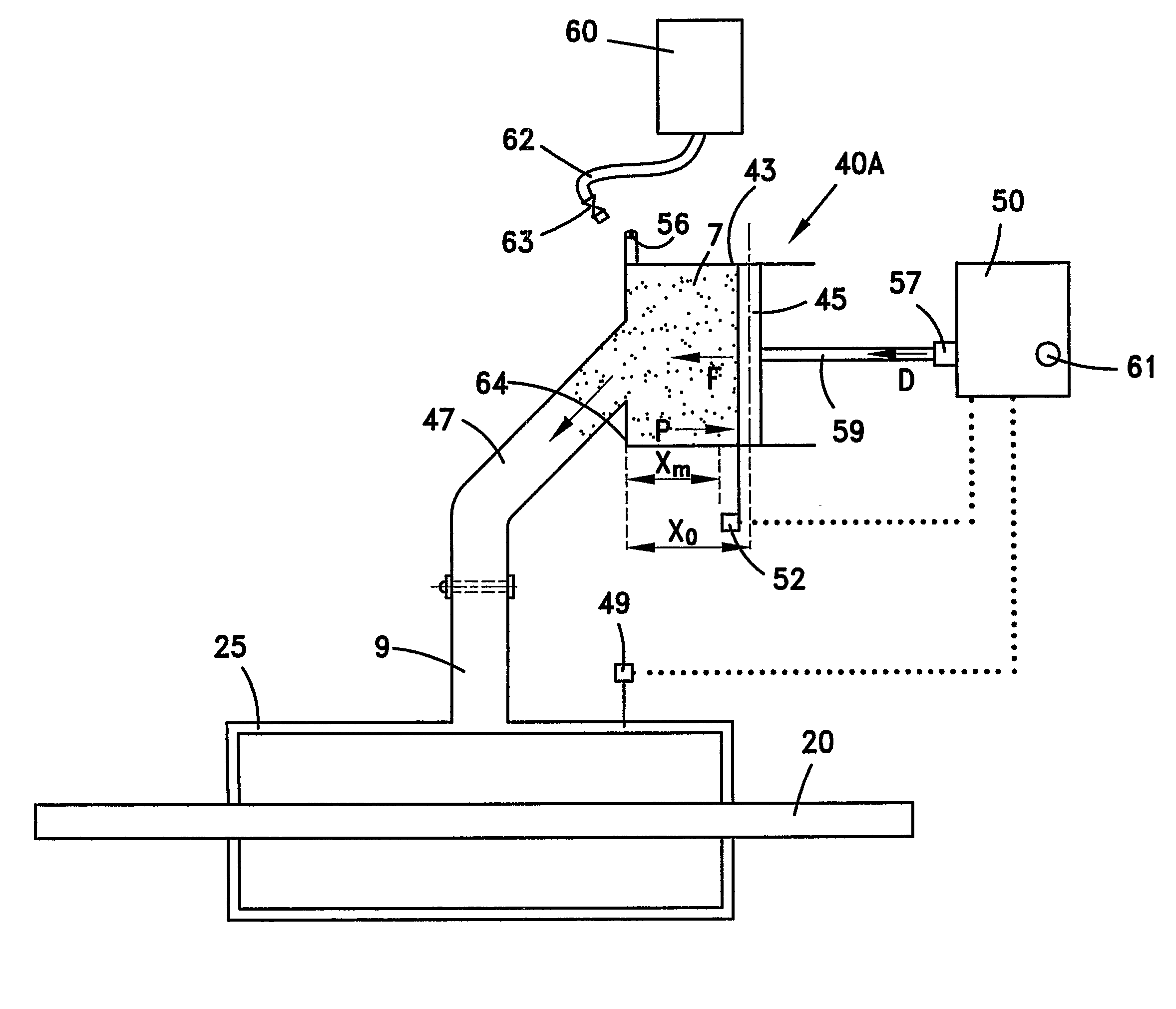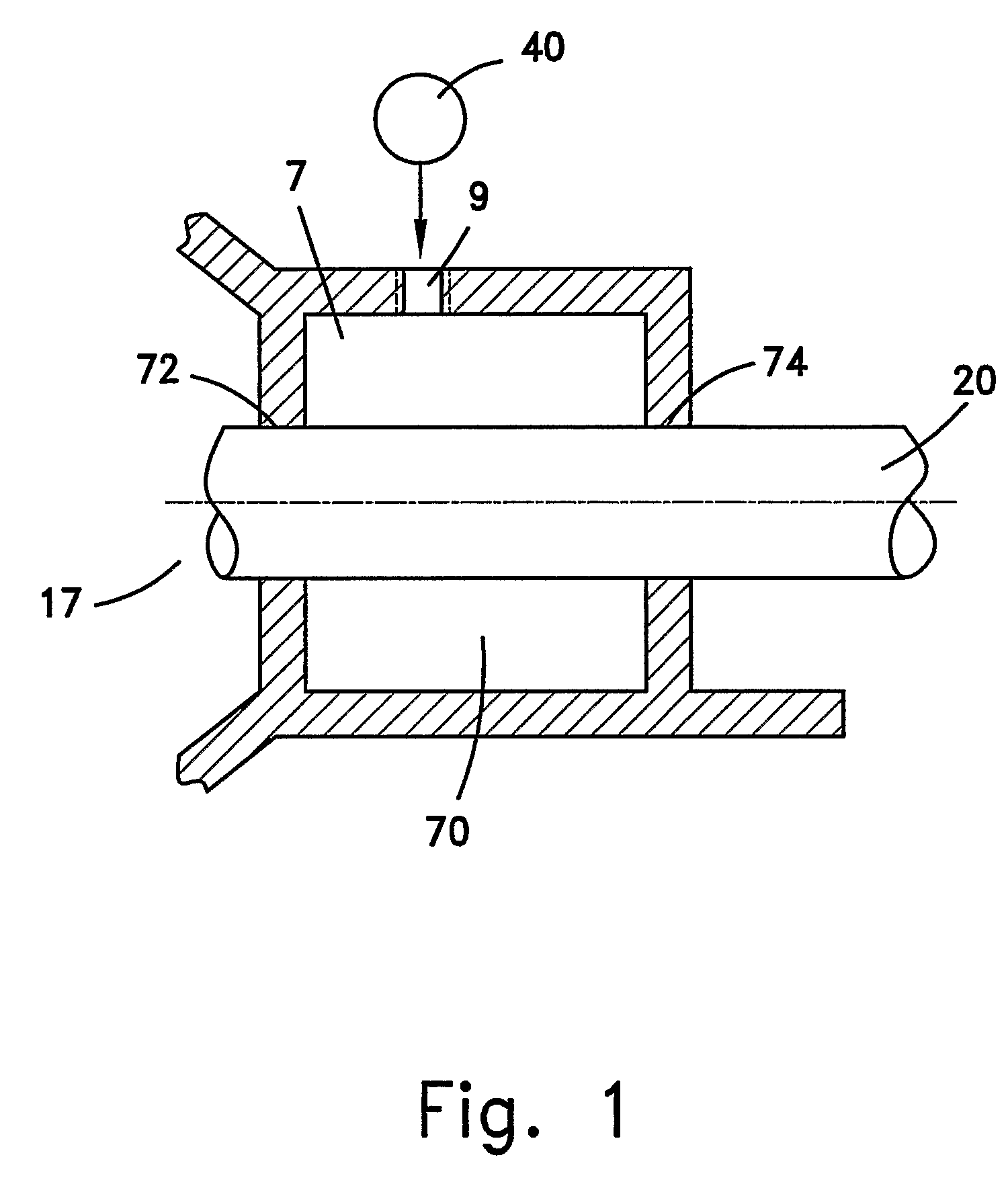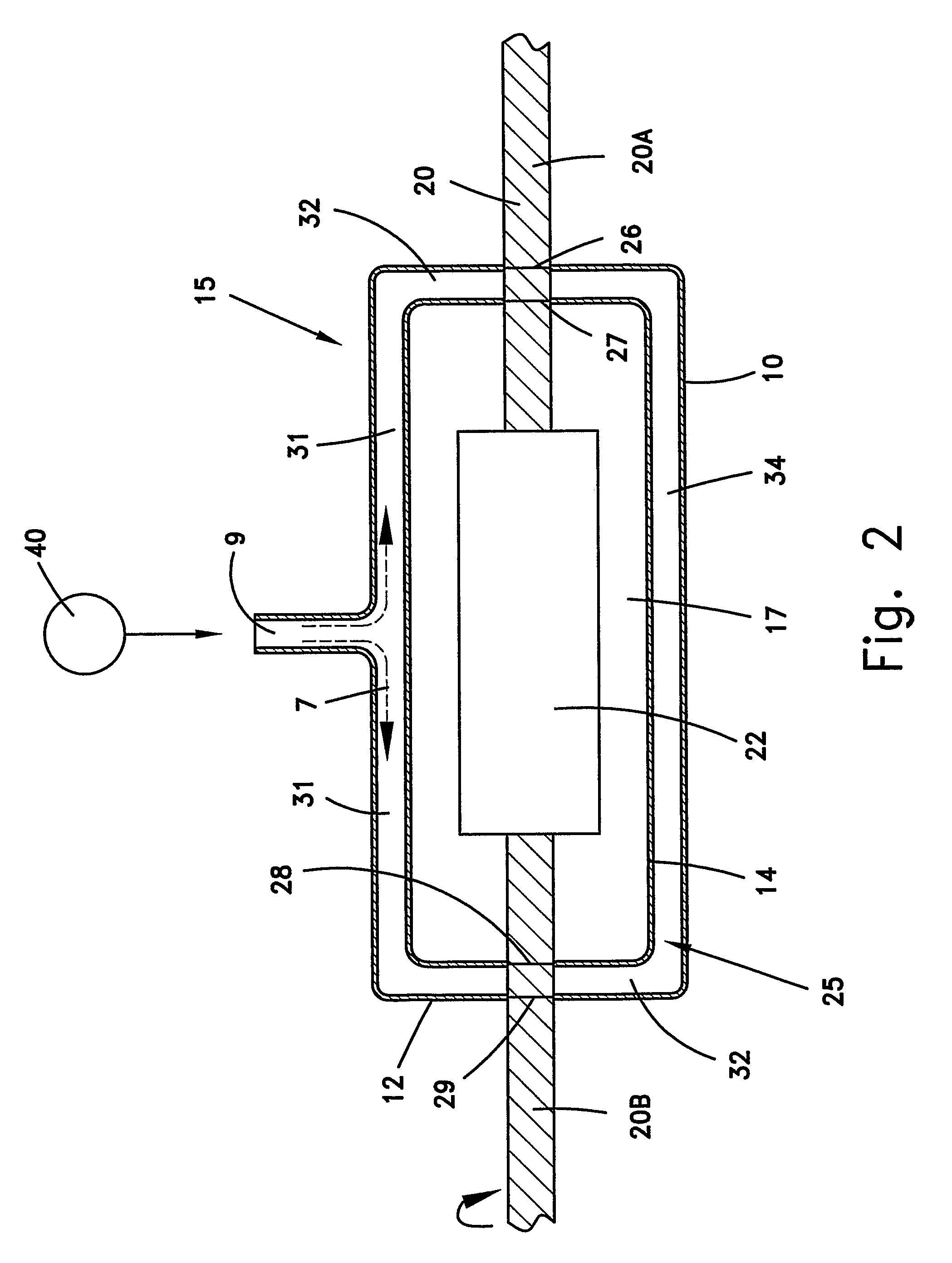Apparatus for delivering sealant at a predetermined pressure to a stuffing box of a shaft
a technology of predetermined pressure and sealant, which is applied in the field of automatic delivery of sealant at a predetermined pressure to a stuffing box of a shaft, can solve the problems of affecting the sealing effect of the sealant, affecting the sealing effect, so as to reduce the effectiveness of the sealant
- Summary
- Abstract
- Description
- Claims
- Application Information
AI Technical Summary
Benefits of technology
Problems solved by technology
Method used
Image
Examples
Embodiment Construction
[0048]The present invention is a novel apparatus for delivering viscous sealant at a predetermined pressure to a stuffing box of a machine, e.g. a rotary machine such as a pump, compressor, and turbine, which produces work by means of a shaft and a working fluid circulating within a working chamber. The apparatus comprises a sealant delivery unit which automatically delivers sealant by means of a constant external force when the sealant pressure within a stuffing box in proximity to the working chamber is lowered, indicating sealant erosion. The sealant pressure within the stuffing box is sufficient to promote the adhesion of sealant to the shaft.
[0049]The following description relates to the adhesion of sealant to a rotary shaft, but it will be appreciated that the invention can be similarly implemented to facilitate the adhesion of sealant to a linearly displaceable shaft.
[0050]FIG. 1 illustrates a vertical cross section of one configuration of a stuffing box 70 which is adjacent ...
PUM
| Property | Measurement | Unit |
|---|---|---|
| pressure | aaaaa | aaaaa |
| viscosity | aaaaa | aaaaa |
| width | aaaaa | aaaaa |
Abstract
Description
Claims
Application Information
 Login to View More
Login to View More - R&D
- Intellectual Property
- Life Sciences
- Materials
- Tech Scout
- Unparalleled Data Quality
- Higher Quality Content
- 60% Fewer Hallucinations
Browse by: Latest US Patents, China's latest patents, Technical Efficacy Thesaurus, Application Domain, Technology Topic, Popular Technical Reports.
© 2025 PatSnap. All rights reserved.Legal|Privacy policy|Modern Slavery Act Transparency Statement|Sitemap|About US| Contact US: help@patsnap.com



